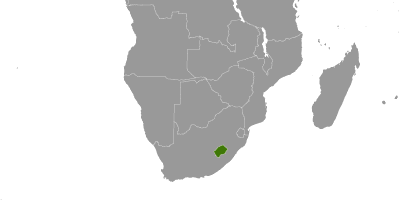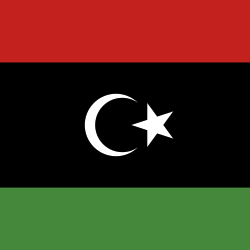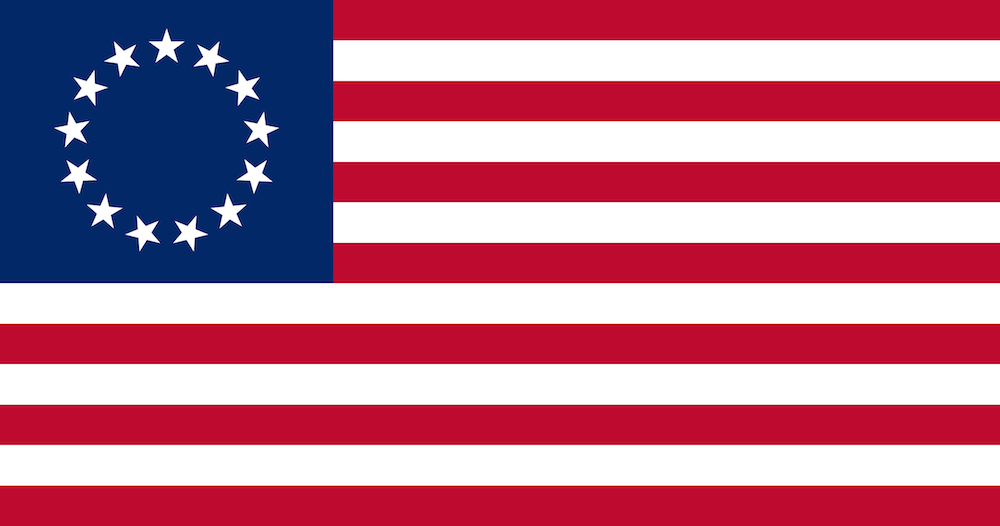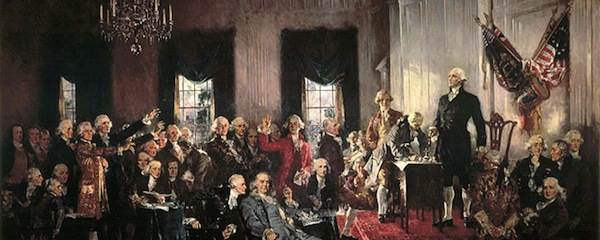
Map of Lesotho’s location in southern Africa.
Eyewitness News of South Africa reports that Lesotho’s General Kamoli — fired from the head of the military just before he attempted to seize power — has taken off with stolen weapons and supporters:
Former Lesotho military commander Lieutenant General Tlali Kamoli has reportedly seized army weapons in preparation for a possible stand-off.
He is accused of destabilising the mountainous country last week after he apparently plotted a coup and has refused to step down as the commander of the Lesotho Defence Force.
Reports from Lesotho are that Kamoli has seized an unknown number of weapons from state armouries in order to prepare for offensive and defensive operations.
Lieutenant General Maaparankoe Mahao says Kamoli has refused to vacate military offices after he was sacked by Prime Minister Tom Thabane.
Eyewitness News also reported that 150 government officials are still in hiding in case the pro-coup forces regain the upper hand. Prime Minister Thabane, however, did return from his temporary refuge South Africa with South African police protection. Negotiations, brokered by South African leaders, continued in an effort to resolve the political crisis peacefully. Thabane had angered members of the military and political opponents for suspending parliament earlier this year and refusing to re-convene it.
An AFP report suggested that the political talks are going poorly. Thabane is still uninterested in bringing parliament back into session, and those military commanders who have remained loyal to his authority are now saying they will be imminently launching operations against Kamoli, the rogue general who has fled into the mountains. They are only waiting now to see if outside armed forces will be assisting.
As part of last week’s agreement Zuma has deployed South African police to protect Thabane and some of his key allies, but Lesotho’s leaders are calling for a more robust force to hunt renegade general Kamoli.
Lesotho’s army commander Lieutenant General Maaparankoe Mahao told AFP on Sunday that military action was now the only option against Kamoli.
“Negotiations have failed as far as we are concerned. At this point in time I think we are left with no option but military operations.”
The army chief was frank about the difficulties he would face in taking on Kamoli, who has taken to the mountains with a seized cache of weapons including artillery, mortars and small arms.
However, “it would definitely be very helpful” to get military support from the Southern African Development Community, a 15-nation regional bloc.
“I have asked the relevant body in SADC to consider coming to our assistance,” Mahao said.
This new development eerily begins to mirror the situation in nearby, much larger Mozambique, where political disputes between various leaders and political parties had devolved over the past year into low-level insurrection against government forces, after opposition members re-took up arms and disappeared into the rural mountains to harass the government. A ceasefire deal there was reached recently ahead of elections and some of the people hiding in the mountains returned to the capital.









